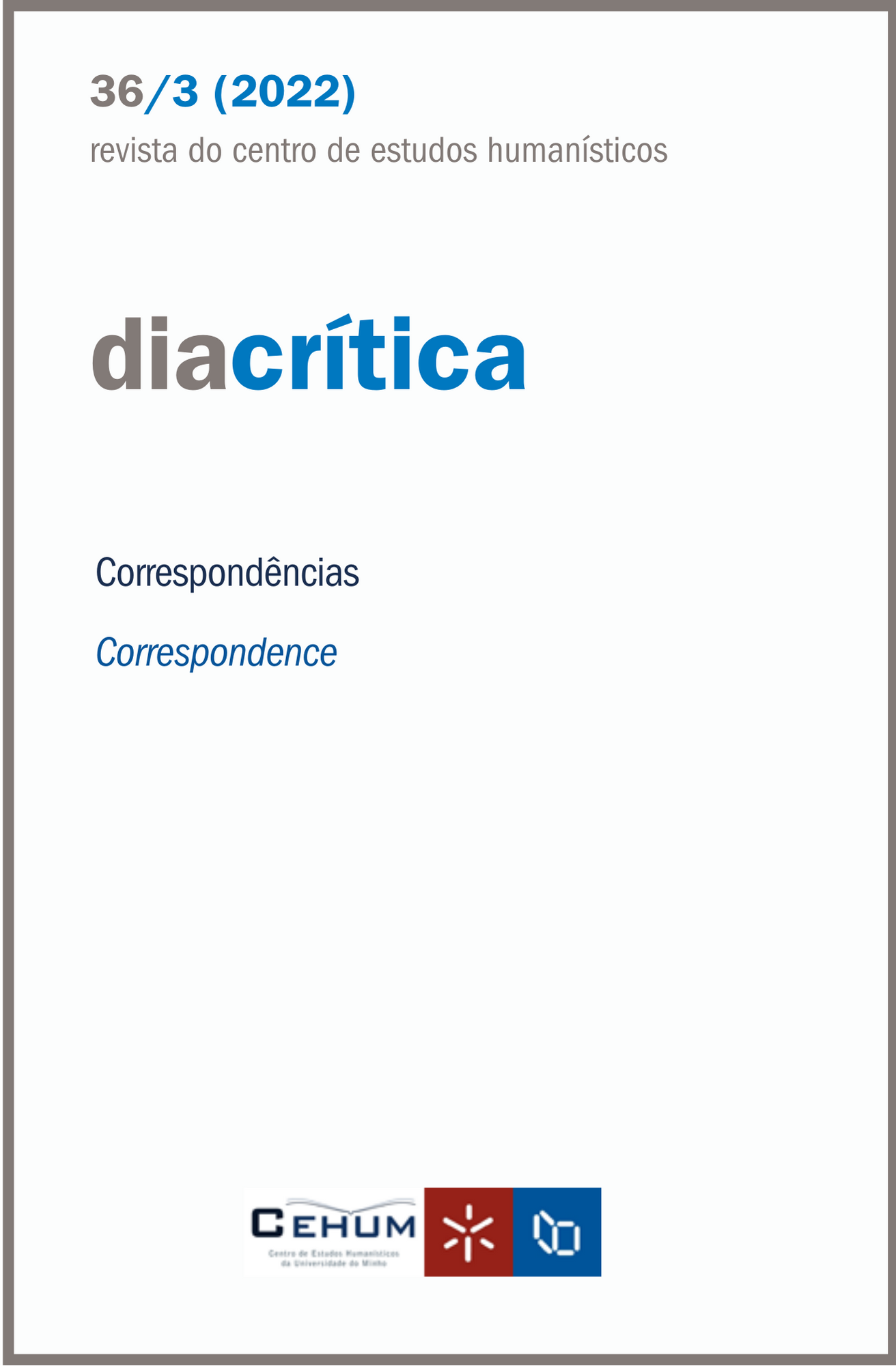“What can I picture us with virtue?” Imaginary facts in new Portuguese letters
DOI:
https://doi.org/10.21814/diacritica.5101Keywords:
Epistolography, Imaginary, New Portuguese lettersAbstract
This article aims to analyze the work New Portuguese Letters (1974) by Maria Velho da Costa, Maria Isabela Barreno and Maria Teresa Horta, whose proposal for rewriting the Portuguese Letters by Mariana Alcoforado seems to go through date and contextualization of the end of the dictatorial period in Portugal, positioning itself as a poetics of the imaginary, challenging the effects of discourse in the world and problematizing the implications of the world in our production of images. It is a proposal for reading this kind of epistolary work, in which the structure of correspondence, interviews, for example, in the gesture of addressing, ends up working with figurations of the feminine and of the women, which are destroyed and deconstructed soon after be assigned, destined or named in the letters. In this sense, both the performative use of language and the poetic genre are considered constituents of these New Letters, which do not cease to hold the reader to the word, to the scream and to the song, also forcing the authors to listen to themselves, in a movement of demand and of dispossession.
References
Agamben, G. (2007). Estâncias: a palavra e o fantasma na cultura ocidental (S. José Assmann, Trad.). Editora UFMG.
Aguiar e Silva, V. (2011). Dicionário de Luís de Camões. Leya.
Amaral, A, L.; Macedo, A. G., & Freitas, M. (2012). Apresentação: “Novas Cartas Portuguesas” e os feminismos. Cadernos de Literatura Comparada, 26/27, 1–7.
Alcoforado, M. (2016). Cartas portuguesas. L&PM.
Barreno, M. I., Horta, M. T., & Costa, M. V. da (1974). Novas cartas portuguesas. Círculo do Livro.
Blanchot, M. (1987). O espaço literário (A. Cabral, Trad.). Rocco.
Blanchot, M. (2005). O livro por vir (L. Perrone-Moisés, Trad.). Martins Fontes.
Camões, L. de. (1977). Versos e alguma prosa de Luís de Camões. Moraes Editora.
Cassin, B. (2005). O efeito sofístico: sofística, filosofia, retórica, literatura (A. L. de Oliveira, M. C. Franco Ferraz & P. Pinheiro, Trads.). Editora 34.
Cixous, H. (1991). Readings: the poetics of Blanchot, Joyce, Kafka, Kleist, Lispector, and Tsvetayeva (V. A. Conley, Trad.). University of Minnesota Press.
Cixous, H. (1976). The laugh of the Medusa (K. Cohen & P. Cohen, Trads.). Signs, 1(4), 875–893. DOI: https://doi.org/10.1086/493306
Haroche-Bouzinac, G. (2016). Escritas epistolares (L. Fonseca Ferreira, Trad.). Editora da Universidade de São Paulo.
Homero (2014). Odisseia (C. Werner, Trad.). Cosac Naify.
Downloads
Published
How to Cite
Issue
Section
License
Copyright (c) 2023 Carolina Anglada

This work is licensed under a Creative Commons Attribution-NonCommercial 4.0 International License.










